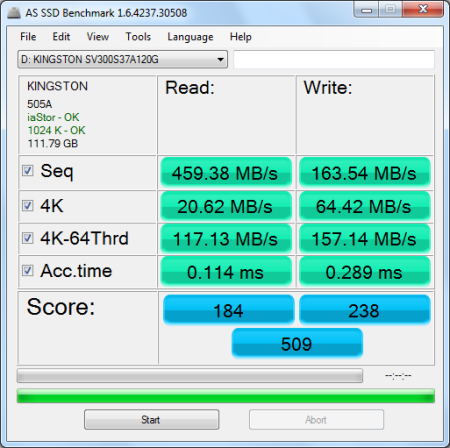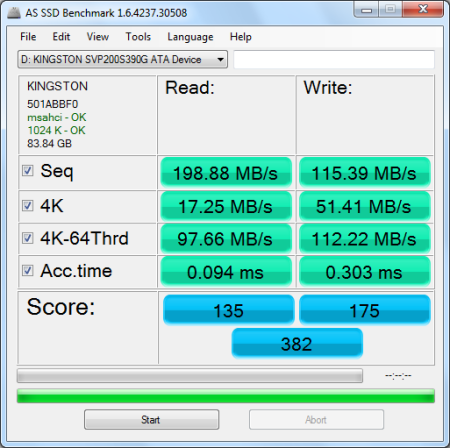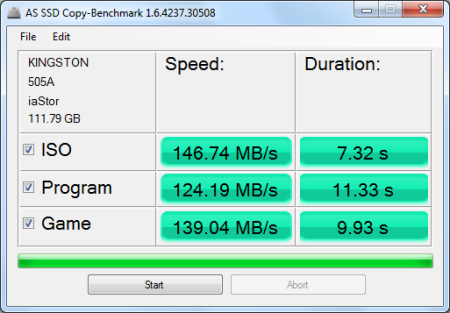AS SSD:
AS SSD is a relatively new benchmark designed specifically for solid state drives. The application contains five synthetic tests used to determine the sequential and random read and write performance of a drive. Take note that AS SSD uses incompressible data in its tests, which can have a major impact on the scores of SandForce-based drives like the SSDNow V300.
AS SSD also includes a copy benchmark. This test copies an ISO (two large files), program (many small files) and game (small and large files), returning the speed and duration of each.
HD Tune Pro 4.61:
Next, I ran a series of tests using HD Tune Pro. This hard disk utility measures a drive's performance by testing its sequential read and write speeds as well as its access time, burst rate and CPU usage. For this review, I'm also going to use it to benchmark the SSDNow V300's random read and write speeds, random access times and the number of operations per second.
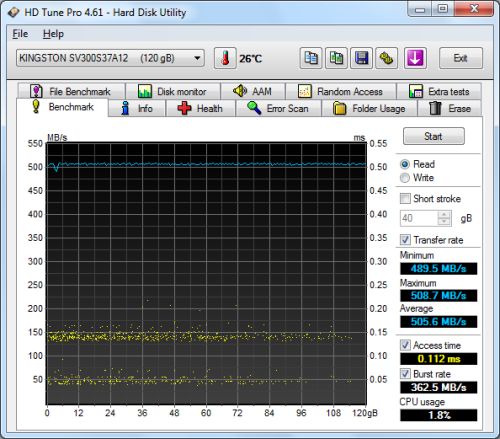 Kingston SSDNow V300 120GB - HD Tune Read Benchmark |
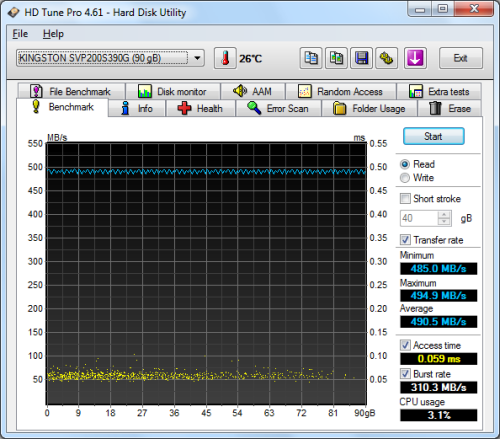 Kingston SSDNow V+200 90GB - HD Tune Read Benchmark |
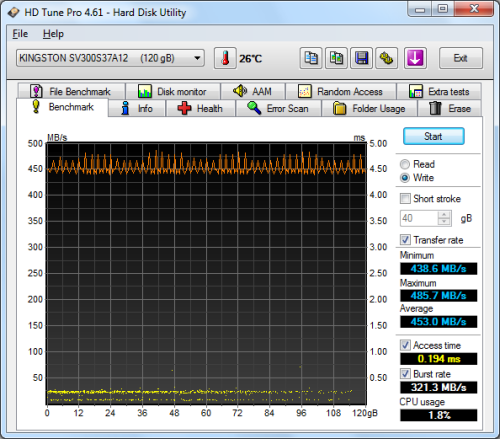 Kingston SSDNow V300 120GB - HD Tune Write Benchmark |
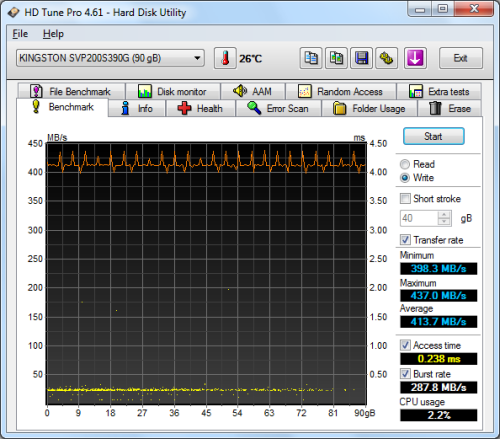 Kingston SSDNow V+200 90GB - HD Tune Write Benchmark |
The SSDNow V300 performed very well when benchmarked with HD Tune. The drive had average read and write speeds of 505.6 MB/s and 454.0 MB/s, respectively, as well as a burst rate of 362.5 MB/s when reading.
 Kingston SSDNow V300 120GB - HD Tune Random Access Read |
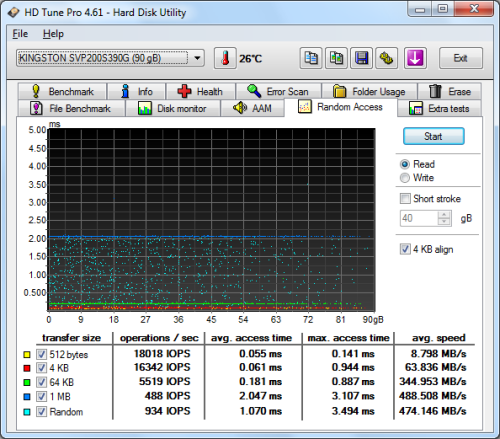 Kingston SSDNow V+200 90GB - HD Tune Random Access Read |
 Kingston SSDNow V300 120GB - HD Tune Random Access Write |
 Kingston SSDNow V+200 90GB - HD Tune Random Access Write |
The SSDNow V300 didn't disappoint when doing random reads and writes. When reading 4KB blocks, the drive reached 20,962 IOPS and had an average speed of 81.885 MB/s. The SSDNow V300 was even faster when writing, reaching 21,562 IOPS with an average speed of 84.230 MB/s.


